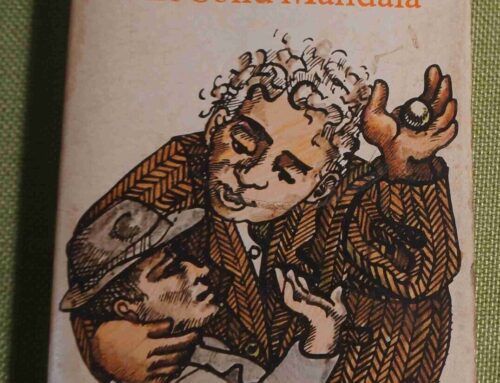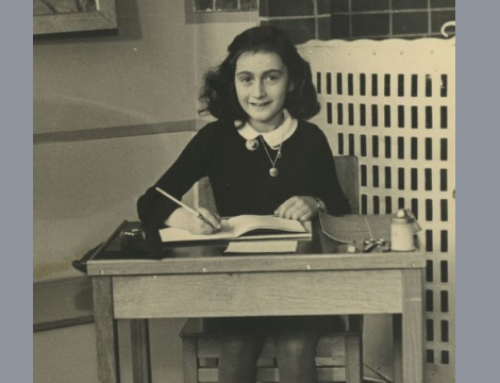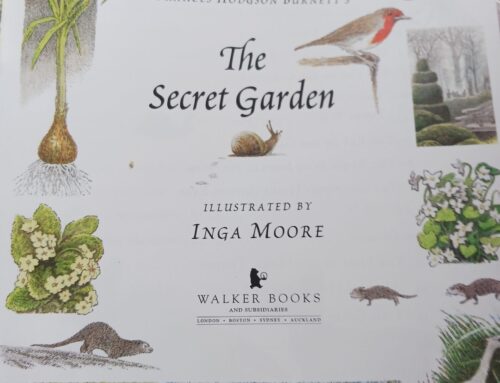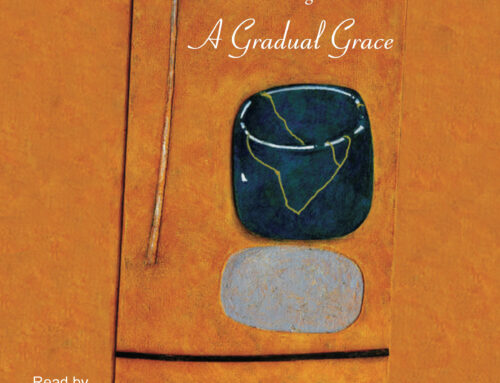The Long Prospect by Elizabeth Harrower was her second book, published in 1958. Harrower was a decade older than me, and for me, she captures so many facets of what it was like to grow up a woman in a lower middle class, fractured, nuclear family. The tragedies of so many women’s lives are caught in her pages in sharp, painful, insightful, darkly funny and disturbing vignettes of character and dialogue that are woven into complex stories of disappointment, loss, survival, and a hard-won independence of vision.
I have three things to say about her writing. First, as I’ve suggested, she mirrors so many of the aspects of life that I experienced in my childhood and early adult years. Second, her vision is not just to mirror and satirise and show how these narrow and cruel forms of family life restrict and stunt the growth of young women; it is to show how a woman (or child) who has intelligence and insight can survive and transcend these patterns. Third, her writing is both brilliant and flawed. Had she been a man, I wonder if she would have become famous rather than being underestimated and overlooked in the canon of Australian literature. In many ways, her writing reminds me of Christina Stead and Patrick White, who both admired her, who both surpassed her in reputation, and who both wrote flawed masterpieces.
In my childhood, my family fractured when my father walked away from my mother, me, and the farm when I was seven years old. In the couple of years before he left, the clouds were gathering, and I was dimly aware of the coming catastrophe. My mother sent me a couple of times in those years to stay with my aunt in Wollongong. My aunt was a spinster, and lived alone in the house she’d been born in; she was a kindergarten school teacher, with a fetish for cats. She had seven cats living with her, and used to get up early in the mornings and drive around town dropping off food for stray cats. She was kind to me and provided a stable temporary home, with a fair bit of freedom. But she was not affectionate and I felt that she lived in her own world and I in mine. In The Long Prospect, the central character, Emily, is a child of about seven to begin with, living with her grandmother Lilian in a fictionalised Newcastle working-class suburb. By the end of the story, she is about thirteen, reunited unwillingly with her mother Paula and father Harry, who had been a stranger to her throughout her childhood: “Just the same, it was immensely embarrassing to have a stranger as an intimate relation.” Emily is isolated in her own world. Her closest relative is her grandmother, who alternates between playfulness, benign neglect and cruel scolding: “That’s right! Cry, cry cry. Your bladder’s too near your eyes, that’s what’s wrong with you, Emily Lawrence. No wonder she wouldn’t stay to say goodbye. I don’t know who would.”
The ‘she’ she refers to is Thea, who had boarded with Lilian for a while when Emily was little, and had treated Emily with respect and affection (spoiled her, in Lilian’s eyes). Emily, in turn, had idolised Thea. Now, living with her grandmother, the housekeeper Dotty, and Lilian’s boarder-cum-‘fancy man’, Emily is trapped in a loveless family, vulnerable and desperately wishing to be loved. She forms idolising attachment to her teachers, who do not favour her. Then Max enters the household as a boarder. He is a scientist, in his thirties, with a lot of books, an educated, literary, aesthetic intelligence, a gramophone and a record collection. When Emily first meets him, she forms an almost instant attachment to him:
She looked again at the man, idly, with more ease, at his eyes, and saw with a shock of profound surprise that his grey eyes were turned on her, and more than looking at—seeing her, saluting her with a kind of serious friendliness as if he knew her . She throbbed with surprise and alarm, looked away, to Lilian, to Lilian’s diamond watch, to the armchair. No one ever looked as if they saw her.
Max has a history. He and Thea had been lovers, but he was trapped in a loveless marriage to a woman who turned out to be mentally ill and drug addicted, and who had been hospitalised for some time. When he was struggling with his loyalty and sense of duty to her and his love for Thea, he and Thea separated. Years later, he is resigned to his single, loveless life. Now, with him boarding in her grandmother’s home, Emily enters a new phase of her life, reading Max’s books, walking with him, sitting in the kitchen over breakfast or homework in the evenings, having long conversations with him about life, poetry, history, astronomy, art, politics, “sense and nonsense.” Here they are in the early days of his residence:
Here, last night, and for many nights back, when text-books were closed, Emily and Max had taken up a dialogue that had no end, leaning across the table like antagonists—Max speaking slowly, listening, watching her, smiling and sending up clouds of smoke, Emily, serious, blotting up facts, ideas, and more than anything, a manner of thinking.
This paradise is short-dated. Lilian’s other boarder, Rosen, whose nose is out of joint with another man in the house, waits for his chance, and sows the seed of distrust in Lilian, that Max’s interest in Emily is unnatural and unhealthy. Very quickly, things blow up, Lilian decides to send for Emily’s father and mother, and make Max leave the house. And so the sad story goes on. The resolution is not a happy one. Emily’s parents reunite and take a flat in Sydney, and she is sent down to live in another narrow, small-minded, loveless bourgeois family: narrower, duller and straiter than Lilian’s house, for Emily had had fun and laughter with Lilian when she was in a good mood, and Dotty, the housekeeper, was a cheerful, kindly, reliable anchor to the household. Yet Harrower allows her young heroine some hope. Through weeks of hating Max for abandoning her, she reaches a place of understanding—”What else could he have done?”—and forgiveness, and realises that, as he had tried to teach her, she is responsible for herself. From feeling amorphous, hopeless, she reaches a point of solidity and acceptance. Yet, still she feels resentful that love has ended.
In a similar way, when my father left, I had to live with his abandonment, and support my mother as best I could. Over the years I killed him off in my heart and learned to live with that loss. Different from Emily, yet alike in the recognition that love is unreliable, that growing up is hard, that adults expect you to get on with your life and do the work you are supposed to do—no matter that your heart is breaking. But Emily had been given great gifts by Max—recognition of the fineness of her intelligence, affectionate respect, and challenging of her young mind to grow and spread her wings beyond the constraints of her upbringing.
I said that Harrower’s writing is brilliant but flawed. At times, in her third-person narrative, I am jolted by her intellectual analysis of the characters and their feelings. For instance, in an early scene, where Lilian visits Thea in her flat, and probes Thea about Max (she had entered the open door of the flat and overheard Thea’s phone conversation with him), the awkward, jerky dialogue between them is broken by this passage of analysis:
By Lilian only the broadest of gestures and words were comprehended; for that reason, very little that was natural to Thea ever came into play against her. That, in Lilian’s company, passivity and non-retaliation were the sole defences of integrity she had long ago learned. She had agreed to pay the enervating toll exacted by the stopping-up of spontaneity.
I had to read this and other passages more than once to figure out what is meant. Here, the narrator is telling us that Lilian’s blunt instrument of insult and insinuation is no match for Thea’s fine intelligence and ability to turn the other cheek. Such dry, cerebral analysis distances me and puts me outside of the scene. For the most part, though, Harrower brings us painfully into this world where it is normal to judge, ridicule and pretend, and where integrity and intelligence are misjudged and belittled because they threaten the illusion of happy families that has been built up.
I’ve spent longer on this review than I usually do because the fictional world mirrors so much of the lived reality of twentieth-century bourgeois life, sharpened and illuminated by the compassionate representation of what it was like to grow up from childhood to womanhood in such a world.




